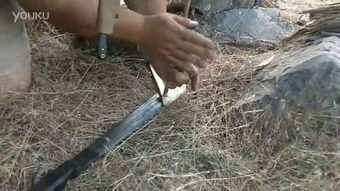
Understanding Fire Ant Bites
 Fire ant bites can be a painful and sometimes dangerous experience. If you’ve ever been bitten by a fire ant, you know how itchy and uncomfortable the sensation can be. In this article, we will delve into the details of fire ant bites, their allergic reactions, and what you can do to manage them effectively.
Fire ant bites can be a painful and sometimes dangerous experience. If you’ve ever been bitten by a fire ant, you know how itchy and uncomfortable the sensation can be. In this article, we will delve into the details of fire ant bites, their allergic reactions, and what you can do to manage them effectively.
Fire ants are small, reddish-brown insects that are native to South America. They have spread to various parts of the world, including the United States, where they are a common pest. Fire ants are known for their aggressive behavior and painful bites. When they feel threatened, they will bite and inject venom into the skin, causing an allergic reaction in some individuals.
Identifying a Fire Ant Bite
 Fire ant bites are characterized by a small, red bump on the skin. The area around the bite may become swollen, red, and itchy. In some cases, the bite may also cause a burning sensation. If you suspect you’ve been bitten by a fire ant, look for these signs:
Fire ant bites are characterized by a small, red bump on the skin. The area around the bite may become swollen, red, and itchy. In some cases, the bite may also cause a burning sensation. If you suspect you’ve been bitten by a fire ant, look for these signs:
- A small, red bump on the skin
- Swelling, redness, and itching around the bite area
- Burning sensation
It’s important to note that not everyone will have the same reaction to a fire ant bite. Some people may experience a mild reaction, while others may have a severe allergic reaction.
Understanding Allergic Reactions
 An allergic reaction to a fire ant bite can range from mild to severe. In some cases, it may even be life-threatening. Here’s a breakdown of the different types of allergic reactions:
An allergic reaction to a fire ant bite can range from mild to severe. In some cases, it may even be life-threatening. Here’s a breakdown of the different types of allergic reactions:
- Mild Allergic Reaction: This is the most common type of reaction. Symptoms may include swelling, redness, itching, and a burning sensation. These symptoms usually resolve on their own within a few days.
- Severe Allergic Reaction: This type of reaction is more serious and requires immediate medical attention. Symptoms may include difficulty breathing, swelling of the throat, hives, and anaphylaxis. Anaphylaxis is a severe allergic reaction that can be life-threatening and requires immediate medical intervention.
It’s crucial to recognize the signs of a severe allergic reaction and seek medical help immediately if you suspect you’re experiencing one.
Managing Fire Ant Bites
If you’ve been bitten by a fire ant, there are several steps you can take to manage the symptoms and prevent an allergic reaction:
- Wash the Bite Area: Gently wash the bite area with soap and water to remove any venom or debris.
- Apply Ice: Place a cold compress or ice pack on the bite area to reduce swelling and numb the pain.
- Take Antihistamines: Over-the-counter antihistamines can help relieve itching and swelling.
- Use Topical Creams: Topical creams containing hydrocortisone can help reduce inflammation and itching.
Remember, if you experience a severe allergic reaction, seek medical attention immediately.
Preventing Fire Ant Bites
The best way to avoid fire ant bites is to prevent them from happening in the first place. Here are some tips to help you stay safe:
- Avoid Areas with Fire Ants: Stay away from areas where you know fire ants are present, such as underbrush, tall grass, and piles of debris.
- Wear Protective Clothing: When working or playing in areas where fire ants may be present, wear long sleeves, pants, and closed-toe shoes.
- Keep Food Covered: Fire ants are attracted to food, so keep your food covered and dispose of trash properly.
- Seal Entry Points: Seal any cracks or openings in your home that could allow fire ants to enter.
By following these tips, you can reduce your risk of being bitten by a fire ant.
Conclusion
Fire ant bites can be a painful and sometimes dangerous experience. Understanding the symptoms of a fire ant bite and how to manage them can help you avoid complications. By taking preventive measures, you can reduce your risk of being bitten by a fire ant. Always seek medical attention if you experience a severe allergic reaction to a fire ant bite.



